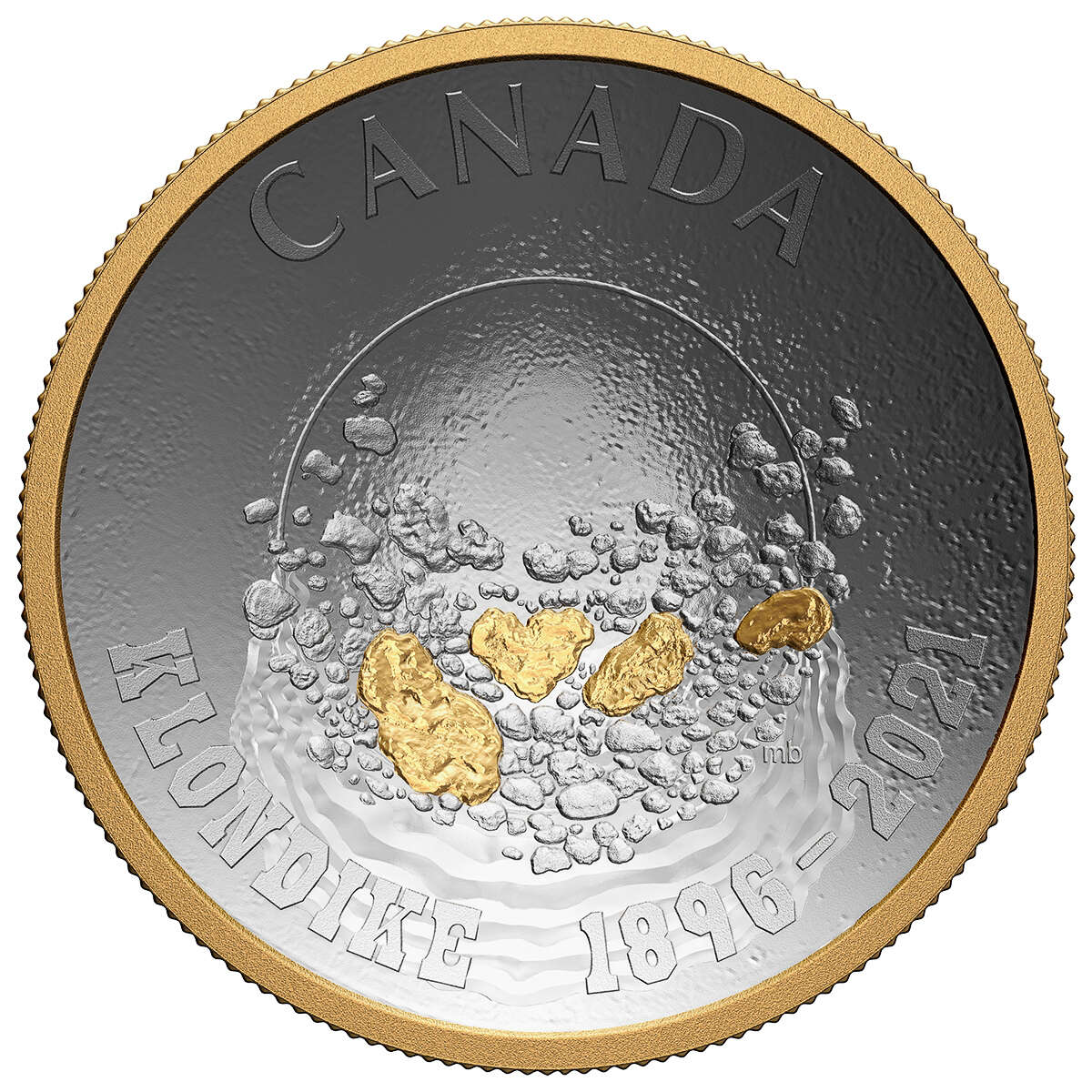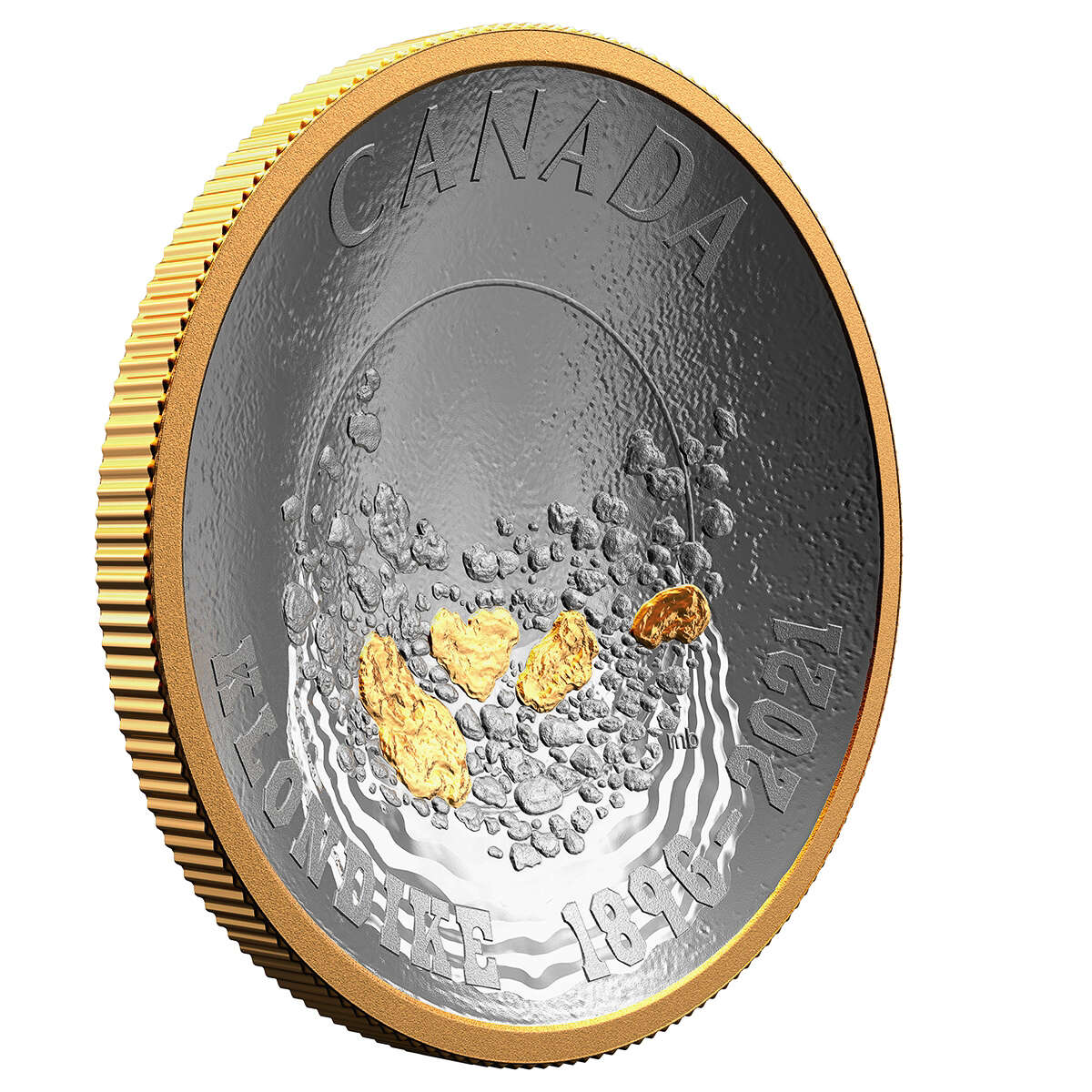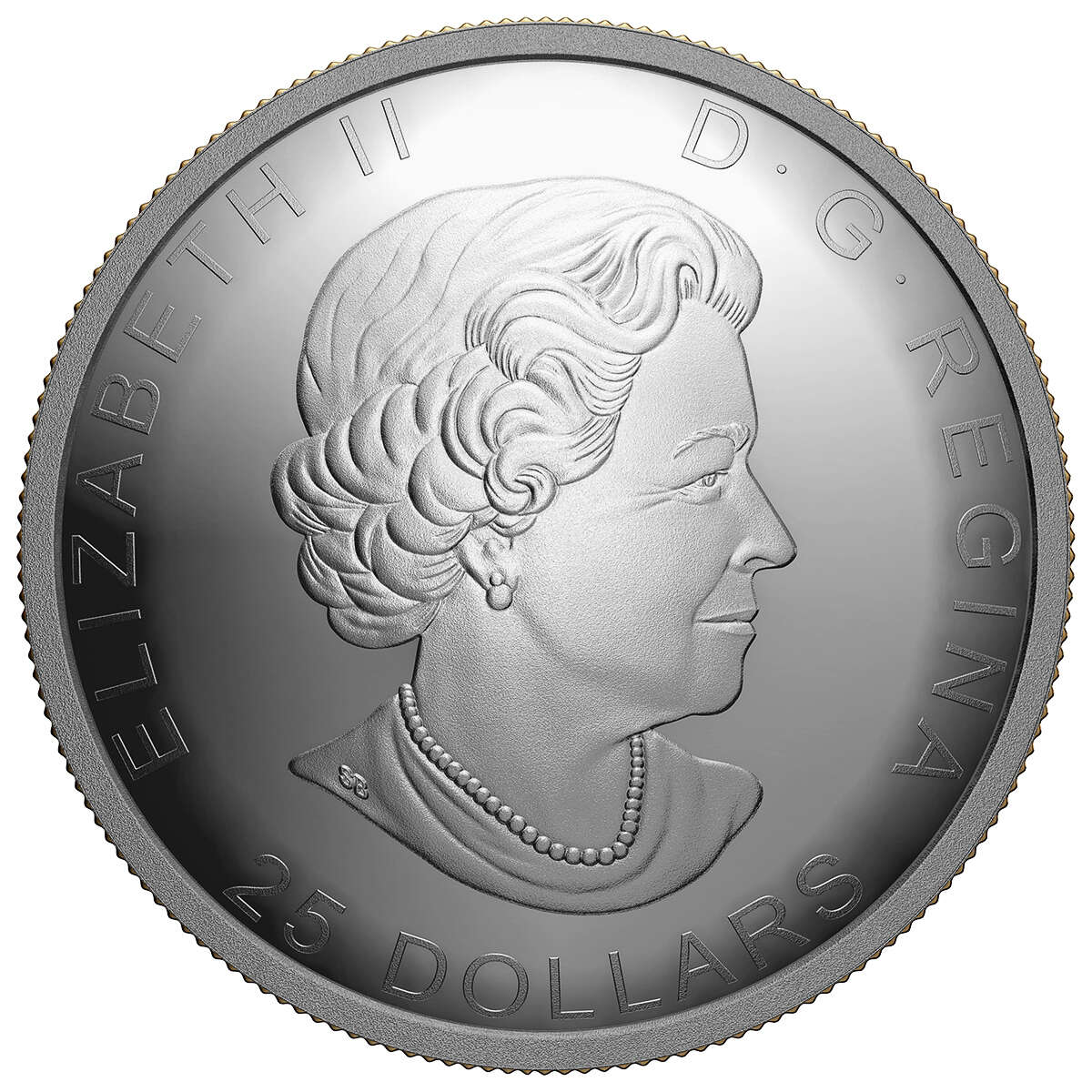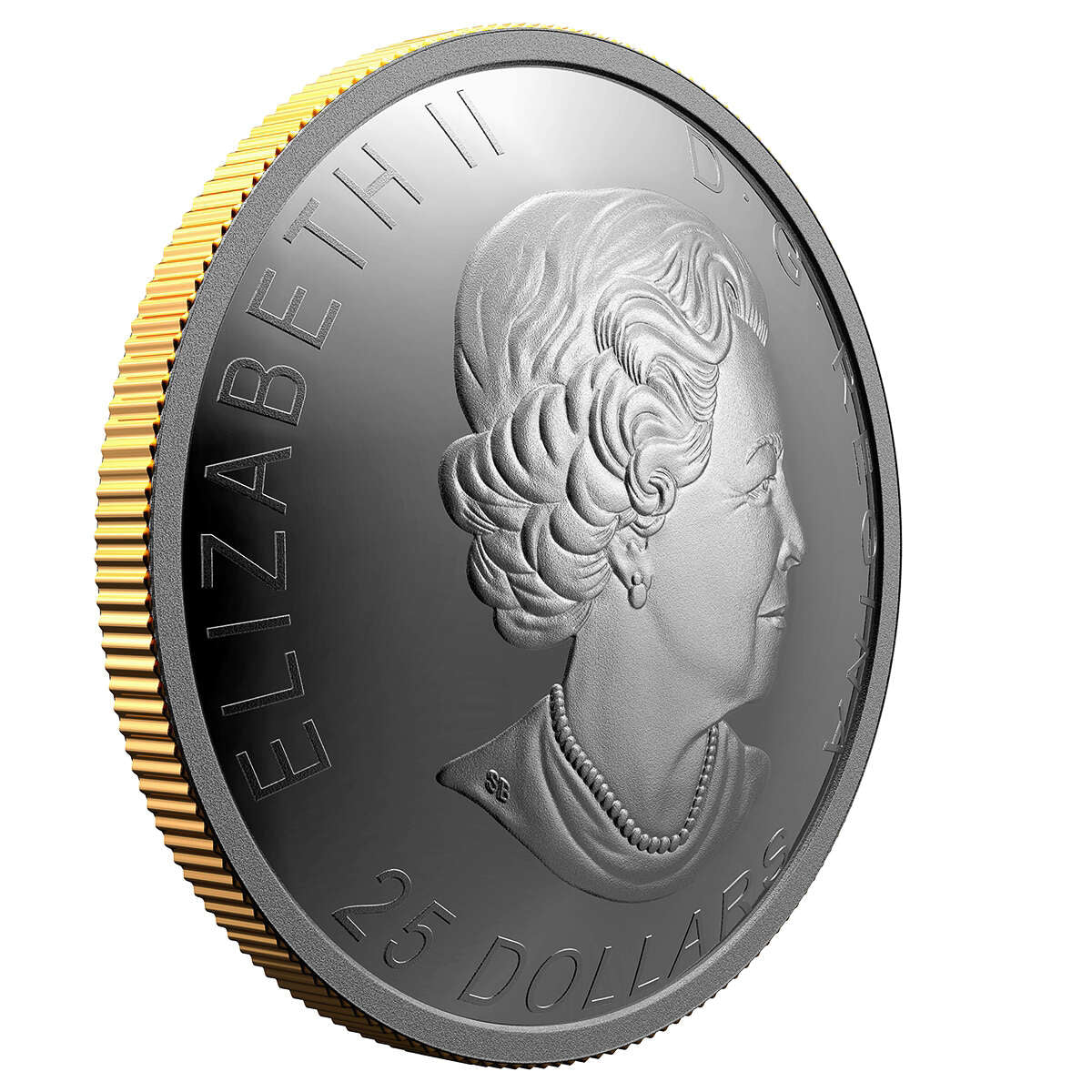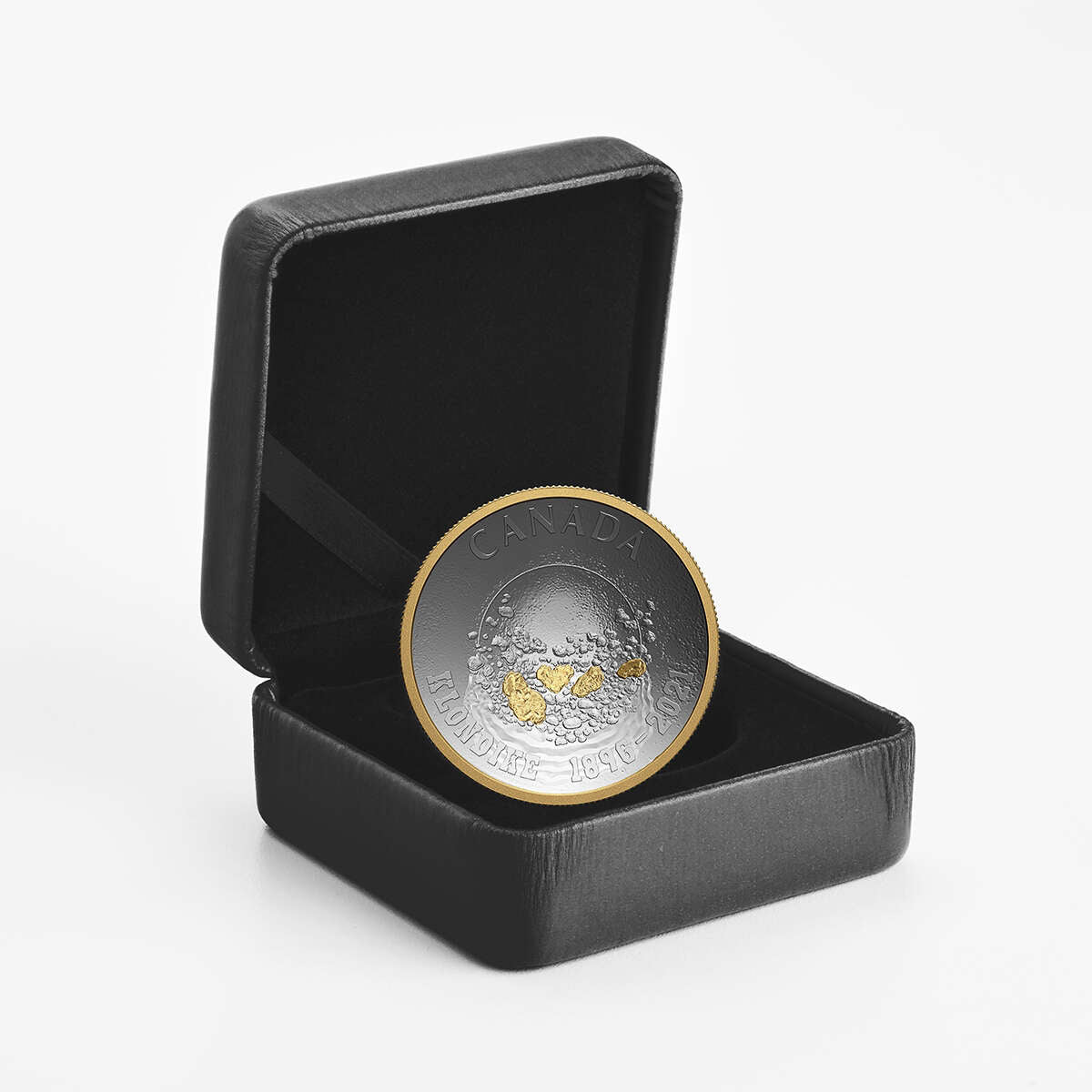Description
Go panning for gold with this pan-shaped coin. “Gold!” It was the golden promise that lured more than 30,000 fortune seekers to Yukon’s Klondike region, and you get a sense of the experience with this pan-shaped (concave) fine silver coin. This is one of the enduring romantic images of the Klondike Gold Rush, and the gold-plated nuggets engraved at the bottom of your pan evoke this critical moment. The influx of gold rushers, however, also forever altered the land, uprooting and repressing the traditional ways of living of the Indigenous peoples who lived in the area for millennia prior to the arrival of settlers. Indigenous communities living in what became Yukon still grapple with this legacy today. Mintage is limited to 5,000. HST/ GST exempt.
The Design:
Framed by a gold-plated rim, your coin’s concave-shaped reverse features a design by RCM engraver Matt Bowen. A combination of engraved details and multiple frostings help capture the look of the steel pans used by those who went panning for gold during the Klondike Gold Rush (1896-1899). Water pouring out of the pan reveals gold-plated nuggets and flecks, which are engraved at the bottom of the pan. The reverse includes the words “CANADA” and “KLONDIKE 1896-2921” to commemorate the 125th anniversary of the discovery that sparked the gold rush. The obverse features a face value of “25 DOLLARS” and the effigy of Her Majesty Queen Elizabeth II by Susanna Blunt.
Did You Know?
Those who panned for gold in the Klondike were looking for placer gold—nuggets, flakes and gold dust that had eroded from the bedrock and was carried downstream into the smaller tributaries of the Klondike River. Since gold is heavier than sand and dirt, those gold pieces would sink into creek beds and through layers of sediment, where it would settle and collect over time.
Gold panning was the simplest method of recovering gold, and for determining whether there was enough of it to make digging worthwhile. Dirt and water were scooped up in the pan then swirled around, so the water would flow up the sides and carry sediment away—with a little luck, the only thing left in the pan would be gold!

